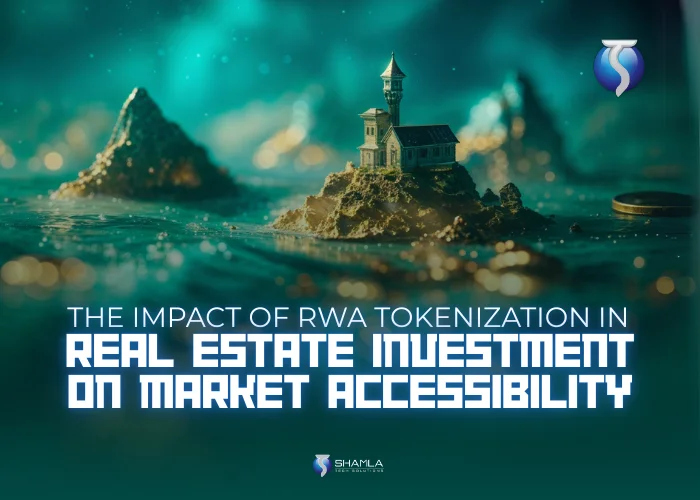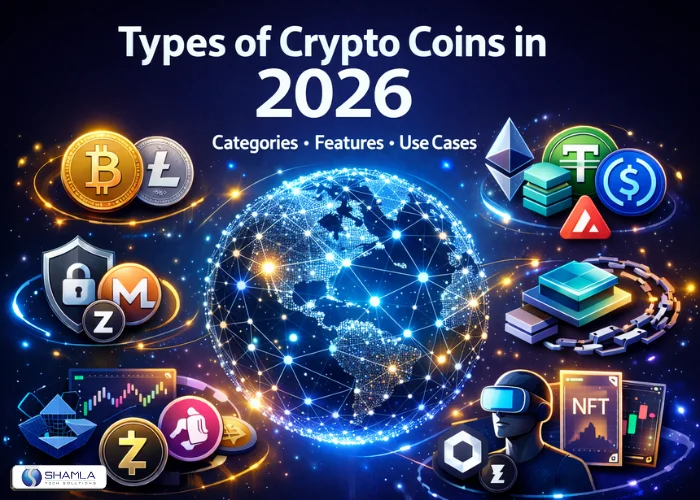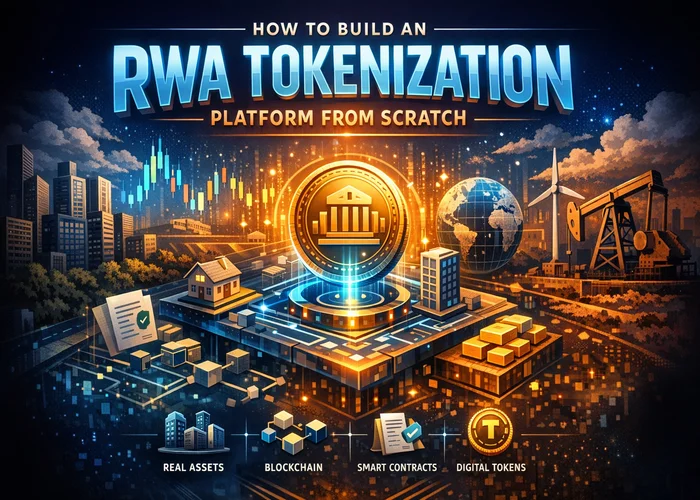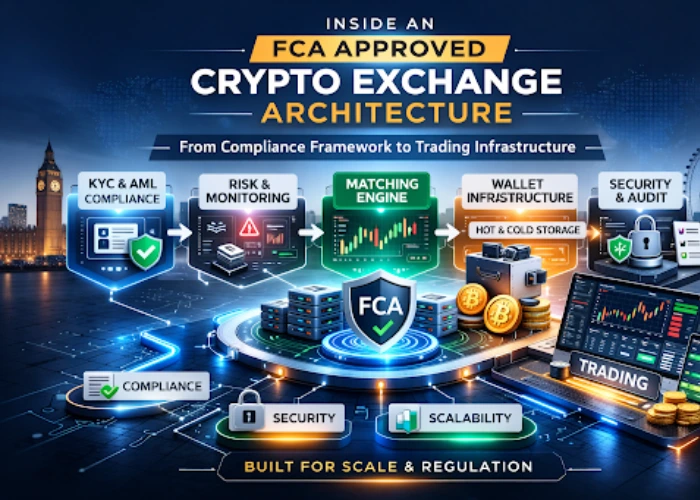Understanding RWA Tokenization in Real Estate Investment
How RWA Tokenization in Real Estate Investment Works?
- Asset Selection and Valuation: A property is found and carefully assessed to establish its market worth.
- Often with a Special Purpose Vehicle (SPV) that owns the real estate asset and releases tokens signifying ownership interests, a legal framework is created.
- On a blockchain system, digital tokens are generated; each one reflects a portion of the value of the property.
- Depending on the jurisdiction, the tokenization process must follow applicable securities laws, anti-money laundering rules, and know-your-customer (KYC) criteria.
- Various distribution channels, such public offerings, private sales, or specialized exchanges, provide the tokens to investors.
- The property remains properly managed, with rental income and expenses proportionally distributed to token holders.
- Investors can sell their tokens on secondary marketplaces, hence generating liquidity not accessible in conventional real estate investments.
Transforming Market Accessibility Through Tokenization
Reduced Investment Criteria
Improved liquidity
Worldwide Market Access
Transparency and Security
The Benefits of Real Estate Tokenization for Different Stakeholders
For Investors
- Even with limited funds, investors can create varied real estate portfolios across several property kinds and geographic areas.
- Transactions based on blockchain usually have less fees than conventional real estate transactions, which comprise legal fees, broker commissions, and other closing expenses.
- Token holders usually get voting rights corresponding to their ownership, hence enabling involvement in property management choices.
- Smart contracts can automatically allocate rental income to token holders, hence removing delays and lowering administrative expenses.
- Data-Driven Investing: The digital character of tokenized real estate allows improved data collecting and analysis, hence enabling more knowledgeable investment choices.
For Property Owners and Developers
- Tokenization draws a larger spectrum of investors by lowering investment criteria, thereby possibly raising demand and property values.
- Tokenization can simplify the fundraising process for restorations or new projects, hence lessening reliance on conventional finance techniques.
- Property owners can tokenize and sell a portion of their property while keeping ownership, hence releasing equity without a total sale.
- Automated systems for investment monitoring, compliance, and income distribution can greatly lower operating costs.
- Creative funding ideas: Tokenization makes possible inventive financing plans unfeasible using conventional approaches.
For the Broader Real Estate Market
- Higher effective pricing of real estate assets could result from higher liquidity and price discovery.
- Wider involvement might lessen the influence of major institutional players joining or leaving posts.
- By lowering the barrier in deploying capital to these locations, tokenization could steer investment into previously undercapitalized communities or regions.
- Tokenization systems could encourage and finance green building upgrades using particular “green tokens” or sustainability-oriented investment pools.
Challenges and Considerations in Real Estate Tokenization
Regulatory Uncertainty
The regulatory system for tokenized real estate changes greatly between countries and is always changing. In many areas, tokenized real estate could be categorized as a security, thereby applying appropriate securities rules. This regulatory complexity increases compliance costs and causes uncertainty for both investors and platforms.
Though worldwide legislative harmonization is far off, progressive nations are creating particular frameworks for digital assets like tokenized real estate. In real estate investing, RWA tokenization’s genuinely worldwide potential can be constrained by this patchwork of rules.
Technical Barriers
- Scalability: Certain blockchain networks struggle with transaction throughput, which could lead delays during high-volume times.
- Different tokenization systems could employ different blockchain protocols, hence causing compatibility problems for investors wanting to diversify between platforms.
- Many possible investors still find the technical difficulty of handling digital assets to be difficult, which hinders widespread acceptance.
Market Education and Trust
The Future of RWA Tokenization in Real Estate Investment
Institutional Adoption
Institutional investors will probably become more involved in tokenized real estate as regulatory clarity and technology maturity drive it. This institutional adoption would add more credibility, liquidity, and sophisticated financial products to the ecosystem.
Already looking into tokenization as both investors and enablers are banks, insurance companies, and pension funds. Their arrival could hasten the movement of tokenized real estate from an alternative investment to a conventional asset category.
Integration with Traditional Finance
- Tokenized real estate funds provided by popular asset managers
- Token purchase bank funding
- Insurance products tailored especially for tokenized real estate investments
- Tax-advantaged accounts—like IRAs or 401(k)s—that provide tokenized real estate choices
Expanded Asset Types
- Energy facilities or toll highways are examples of infrastructure projects
- Timberland and agricultural land
- Construction funding and development initiatives
- Specialized real estate such data centers or medical facilities
By giving individual investors access to asset classes once solely available to institutional
investors, this growth would increase the advantages of real estate tokenization even further.
Improved Functionality via Smart Contracts
- Automated property maintenance reserves
- Dynamic rental price depending on market conditions
- Tokenized warranty programs and insurance
- Decentralized governance systems for property decisions
Conclusion: Democratizing the World's Largest Asset Class
Despite regulatory and market education issues, tokenization is making real estate investment more accessible, efficient, and liquid. RWA tokenization in real estate investment could democratize access to the world’s most fundamental asset class and create wealth creation opportunities for ordinary investors as the technology improves and use increases.
For investors seeking real estate exposure, the increasing network of tokenization platforms may offer new opportunities. Tokenization lets property owners and developers access cash and create new ownership structures. Increased participation and liquidity will boost real estate market efficiency and stability.








